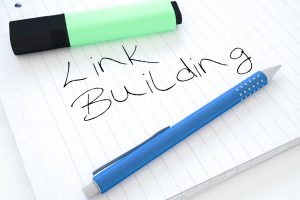I have been building private networks since 2006. They still remain one of my favorite ways to build links, but there are a lot of misconceptions about them. Let’s clear up some myths about building and owning your own private network.
1) They do not work.
Let’s just get this one out of the way right away. If you think private networks do not work, I cannot help you. I’m not going to even try to change your mind. You can just stop reading right here.
2) They are expensive to own.
The cost of owning and operating a private network, once it is built and set up is the cost of renewing your domain registration and WHOIS privacy each year as well as your web hosting costs. Maybe $20 for domain registration. Some domains you are looking at upwards of $30/yr because of specialized TLDs that registrars use as an excuse to charge more. For web hosting, you can get decent shared hosting, which is all you really need for a private network site, for $30-50/yr.
We are talking about $50-80/yr plus if your registrar charges you for WHOIS privacy. If a domain is not helping you to make at least $50-80 per year, you are probably doing something very wrong.
3) Google will find your network.
The way I build private networks and taught it in the course I built was that you build sites to look like any other website you might come across. They can be anything from a directory to a hobbyist’s blog to an information resource site. Whatever you want. They just happen to link to a site or sites that you want them to link to.
Basically, if your network sites could stand on their own as useful sites, there is no reason to ever worry about Google finding them.
4) When building a network you should buy domains with high metrics.
People are often looking for “high DA” domains to use to build their own private network with. When looking at a big list, you can use DA to try to filter out some domains that are more than likely worthless, but you should never make purchasing decisions based on DA (or any other 3rd party metric). Ignoring the fact that they can be inaccurate, the big problem is they are not always up to date in their data. A domain could have lost some of its most valuable links since the last time its DA was updated, and now you just bought a dud.
5) You must post to your network sites frequently.
There are so many static websites across the internet that still have retained their authority, rankings, traffic, etc. Your network sites are no different. Once built, you do not need to keep posting to them regularly if you do not want to or have a need to.
6) You must buy domains that are in your niche.
You can repurpose domains with a good link profile and build it into a site about a different topic. Through internal links, you are going to launder the link equity into something relevant.
7) You must use different domain registrars for each site.
If you are using popular domain registrars, you do not need to worry about this. You certainly could divide them up if you wish to, but it is not necessary. Registrars like GoDaddy and Namecheap control huge shares of the market. Having 20 sites all registered to one of them which happen to link to the same website would not create a footprint you need to worry about.
Remember, your network is not going to be the only links your site has.
Now, if you registered all 20 sites with some small domain registrar nobody has ever heard of, that might be a more recognizable footprint, and one to avoid.
8) Domains you buy to build your private network on must be indexed before you buy them.
This has never been true. Domains you find that were dropped or that are in domain auctions have often been dropped from Google’s index at that point. As long as the links are still alive and pointing to the site, the domain should be fine.
The only caveat to this would be if you see signs that the domain might have been used for something in the past that would have caused Google to forcefully remove it from the index. Things like serving malicious or illegal content would be an example.
9) You should block bots from Semrush, Ahrefs, Majestic, etc. to keep your network safe.
This is not necessary. There are plenty of legitimate reasons larger sites block these bots, and none of them have to do with hiding anything. Again, if you are building network sites that could stand on their own as a legitimate site, what are you hiding from?







